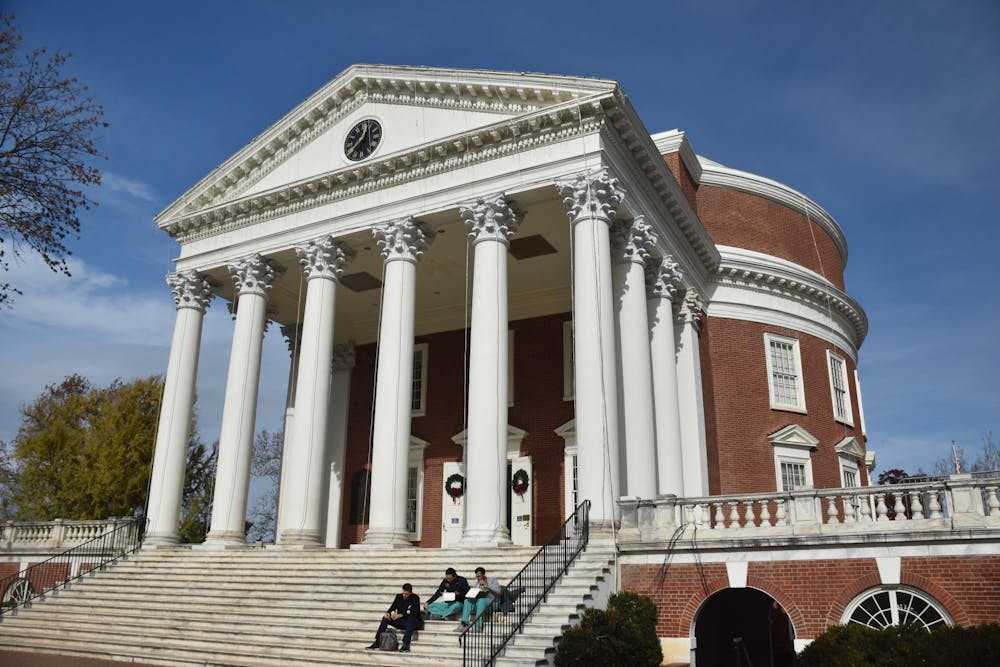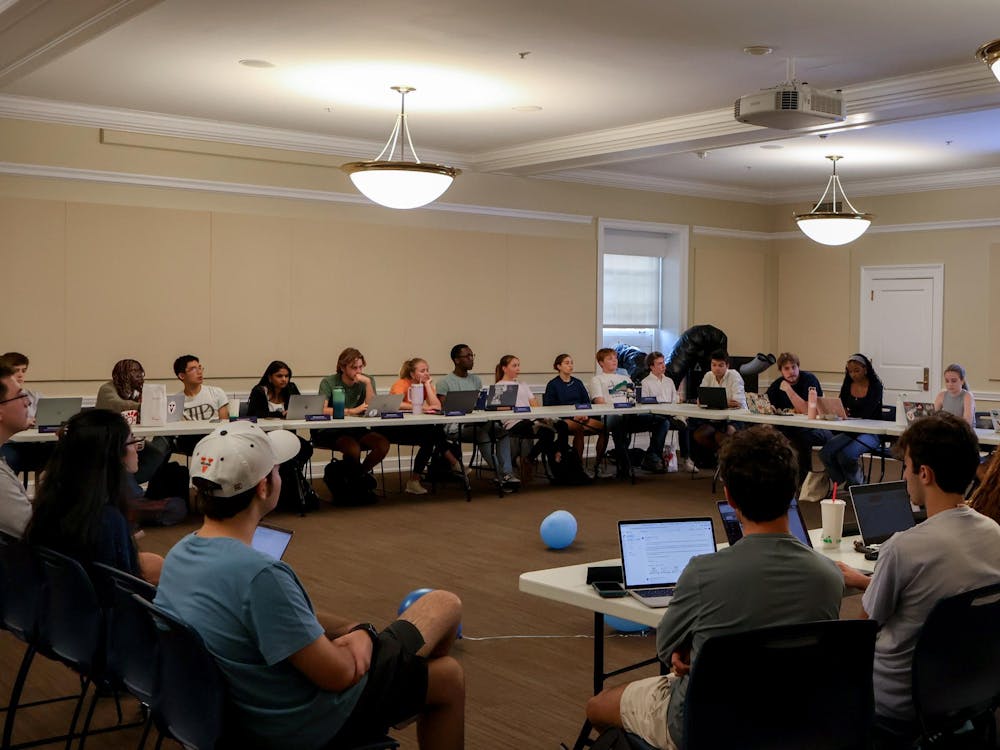During its first meeting of the semester, Student Council heard an update on its Capital Campaign and passed a bill amending its data privacy policies.
Abel Liu, president of Student Council and fourth-year College student, began the meeting with updates from the Executive Board. Liu first addressed a recent meeting with University President Jim Ryan, during which the pair discussed student concerns about housing and other resources for those who need to isolate.
Liu said he was assured that “hundreds” of isolation are available for students and that the University will explore additional COVID-19 testing sites in response to concerns. The University currently advises students who live off and on Grounds to isolate in their own homes if possible, to preserve limited quarantine space for those who are unable to return home.
Liu also outlined Student Council’s priorities for this upcoming semester, which include efforts to increase affordable housing and the Capital Campaign for Student Council’s Support and Access Services branch.
Gabriela Hernandez, chair of the representative body and third-year College student, then provided information regarding the town hall Student Council hosted virtually Thursday to address student concerns related to COVID-19 this spring. The town hall allowed students to voice concerns and interact with University and community members.
Following Executive Committee updates, Jaden Evans, director of finance for Student Council and third-year College student, provided an update on the Capital Campaign Ad-Hoc Committee, which was created in December to support the creation of a $5 million endowment for Support and Access Services. The committee’s members include Liu, Evans, Ceci Cain, vice-president for administration and third-year College student, Adrian Mamaril, chief of Support and Access Services and third-year Commerce student, Riley Reynolds, director of the Textbook Access Office and third-year College student, Sarrah Abdulali, director of the Aetna Insurance Fund and second-year College student, Rachel Hightman, director of the Financial Accessibility Committee and third-year Batten student and third-year College student Santhosh Rajendran.
Student Council’s Support and Access Services branch was approved in a constitutional referendum in March 2021 and provides direct resources and services to students through grants and funding for needs including food and basic resources, textbooks and mental health services.
2021-22 expenses for Support and Access Services have already totaled over $200,000. A substantial portion of this budget was funded by an "extraordinary" allocation of surplus SAF funding from previous years, Liu and Evans said. Though Evans said he is working to ensure these services are available as long as students need them, using surplus SAF funding is not sustainable — endowed funds raised through the Capital Campaign will supplement University support for the branch in the future.
“We expect as the needs of students [evolve], the need to address those needs will exist nonetheless,” Evans said. “That's no less of a reason for us on our end to ensure that we have the capacity to fire fill in those gaps as we continue to lobby the University to develop long-term solutions.”
The Capital Campaign Ad-Hoc Committee is currently in the process of compiling data and testimonials from students with the hope of using them in the upcoming fundraising campaign. Evans said the committee plans to complement outreach through official University channels with direct student contact, events and recognition opportunities.
“By demonstrating the myriad ways in which these services empower all students, especially those from first-generation and low-income backgrounds, we are hoping that donors will recognize the unique opportunity to support this model as an exemplar of student self governance,” Evans said.
The Council then moved into legislative session, during which the representative body passed a FB21-26, a bill that amends Rules and Ethics Board’s code of conduct policies to include data privacy.
Per the bill, all data users must annually agree to Student Council’s most recent data privacy policy. This policy is developed in compliance with IRM-003, the University’s policy regarding data privacy, and applies to anyone authorized by the data science director and vice president of administration to access data collected by, given to or held by Student Council’s Data Science Committee or Support and Access Services branch.
Cain said that as Student Council moves to become more community service-oriented, its services require more private data to be collected. With that comes a need to protect it, Cain said.
“As we move to be more of a service-provision body, we are collecting a lot more sensitive information,” Cain said. “We just want to make sure that we're being discreet and protecting people's privacy.”
The representative body passed the bill with 20 votes in favor and one abstention.
The legislative body then passed FB21-27, a bill to amend existing student activities fee guidelines to ensure that net CIO funding does not exceed $10,000 after support from student activity fees. The bill also allows funding of up to $50 per semester for food-related costs of CIOs.
Liu said he hopes the resolution will alleviate funding issues for some CIOs.
“I know that a lot of student organizations are frustrated by the lack of funding available for food from Student Council or other sources and this definitely takes a step towards dealing with that broadly,” Liu said.
The bill clarifies that there will be no funding restrictions on food for multicultural events and events pertaining directly to the mission of the organization. The bill also specifically excludes using funding for alcohol.
The bill was passed with 20 votes in favor and one abstention.
The next Student Council meeting will be held Tuesday, Feb. 1 on Zoom. The link can be accessed on Student Council’s website.







